As a BetterHelp affiliate, we receive compensation from BetterHelp if you purchase products or services through the links provided
If you’re struggling with anxiety, you’ve likely explored various remedies to mitigate it. Consider massage therapy as a viable option. Consistent massages offer a host of benefits that extend beyond mere relaxation.
Massage therapy is a proven technique for addressing both mental and physical tension. When it comes to anxiety, massage has the potential to decrease its symptoms and improve overall well-being significantly. But how often should you get a massage to achieve these benefits?
Determining the ideal frequency of massage sessions for anxiety relief is personal. Factors to consider are your individual needs, the severity of your anxiety, and your overall experience with a massage therapist. Working with a qualified massage therapist to create a tailored plan for your anxiety management is essential.
Key Takeaways
- Regular massages can help alleviate anxiety symptoms and improve well-being.
- The ideal frequency of massage sessions is based on personal needs and the severity of anxiety.
- Working with a qualified massage therapist is crucial for creating a tailored anxiety management plan.
 Understanding Anxiety and Massage Therapy
Understanding Anxiety and Massage Therapy
Anxiety can be described as unease, worry, or apprehension. It is quite natural for you to experience these feelings occasionally, but it becomes more constant and overwhelming for some individuals. Anxiety disorders, such as generalized anxiety disorder, can significantly impact a person’s daily functioning and overall quality of life.
Massage therapy has been proven to be an effective treatment for reducing anxiety and stress. With various types of massages available, such as deep tissue, Swedish, or hot stone massages, it is essential to understand how they can help alleviate anxiety-related stress.
One way massage therapy helps with anxiety is by decreasing cortisol levels. Cortisol is a hormone that surges when stressed, playing a vital role in how your body responds to stress. Regular massage therapy may decrease cortisol levels, creating a more relaxed state for your nervous system.
Additionally, massage therapy is known to stimulate the release of brain chemicals called endorphins, which help to promote a sense of well-being and happiness. This ultimately helps to calm the nervous system and improve mood. The combination of lowered cortisol levels and increased endorphins creates a more balanced mental state where anxiety is lessened.
Choosing the right type of massage for your anxiety is vital. Swedish massages, for example, use long strokes and gentle kneading movements to promote relaxation and calmness. On the other hand, deep tissue massages focus on the underlying layers of muscle tissue, releasing the tension hidden within. Lastly, hot stone massages utilize heated stones placed on specific points of the body to help relax the muscles while encouraging circulation and allowing for deeper tissue manipulation.
In conclusion, integrating massage therapy into your wellness routine could be incredibly beneficial if you suffer from anxiety or stress. Regular massages can lower cortisol levels, increase endorphin release, and calm your nervous system, promoting a healthier, more balanced state of mind.
 Benefits of Massage for Anxiety
Benefits of Massage for Anxiety
Massage therapy can be an effective way to manage anxiety. Focusing on this therapeutic tool’s physical and emotional benefits can enhance your overall well-being, making relaxation a more accessible state of mind.
One major advantage of massage is its ability to reduce cortisol levels. Cortisol is the primary stress hormone, and high levels can contribute to feelings of anxiety and tension. Regular massages have been shown to lower cortisol levels, making it easier for you to feel calmer and more at ease.
Another key benefit of massage is its impact on mood-enhancing neurotransmitters, such as serotonin and dopamine. These chemicals are essential for fostering a positive mental state, and studies have shown that massage can increase their levels, further promoting relaxation and mental health.
In addition to its emotional benefits, massage can also improve physical well-being. Massage may alleviate some physical symptoms accompanying anxiety by addressing muscle tension and discomfort. A skilled massage therapist’s soothing touch can help relax tight muscles, easing any associated pain or tension.
Finally, massage for anxiety offers an opportunity to focus on relaxation and stress reduction. Creating a calm environment promotes mindfulness and allows you to engage in self-care, essential for overall mental health. Scheduling regular massages can remind you to prioritize these aspects of your life.
Incorporating massage into your wellness routine can offer emotional and physical benefits that reduce anxiety. By proactively addressing the needs of your body and mind, you can improve your overall well-being and approach life with greater serenity.
 Types of Massage for Anxiety Relief
Types of Massage for Anxiety Relief
Deep Tissue Massage
Deep tissue massage focuses on relieving tension in your muscles and connective tissues. This type of massage uses firm pressure and slow strokes to reach deeper layers of muscle and fascia. It can be especially beneficial for those experiencing chronic muscle pain or tightness. Deep-tissue massage may help alleviate anxiety and promote relaxation by easing muscle tension.
Swedish Massage
Swedish massage is a more gentle approach to relieving anxiety through massage. Its primary goal is to relax the entire body by using long, gliding strokes in the direction of blood returning to the heart. This type of massage can be particularly soothing for those new to or who prefer a lighter touch. The increased blood circulation and lymphatic drainage achieved through Swedish massage can contribute to a sense of well-being, reducing anxiety levels.
Hot Stone Massage
Hot stone massage uses heated stones on key body points to promote deep relaxation and stress relief. The warmth from the stones penetrates deep into your muscles to ease tension, increasing blood flow and reducing anxiety. During a hot stone massage, the therapist may also use the stones to perform gentle strokes, combining the benefits of both heat and massage techniques to alleviate anxiety.
Aromatherapy
Aromatherapy is a unique approach to massage for anxiety relief. It combines essential oils’ healing powers with massage therapy’s soothing touch. In an aromatherapy massage, essential oils are carefully selected for their calming properties and mixed with a carrier oil, which is applied to your skin during the massage. Breathing in these oils’ scents can help balance emotions and promote relaxation, making it an excellent option for those seeking anxiety relief. Combined with the physical benefits of massage, aromatherapy can lead to a significant reduction in anxiety symptoms.
Frequency of Massage to Alleviate Anxiety
When managing your anxiety, you might wonder how often you should get a massage. The frequency at which you receive massages can significantly impact your overall mental health and well-being. Understanding the recommendations to make the most informed decision for your needs is important.
Typically, it is suggested to start with one massage per week. This frequency will allow you to experience the stress-relieving benefits of massage while giving your body the appropriate amount of time to recover. As you become more accustomed to the routine and feel the positive effects of massage on your anxiety levels, you can gradually decrease the frequency to once every two weeks.
However, the recommended frequency of massages for anxiety may vary depending on your circumstances. Factors such as the severity of your anxiety, personal preferences, and commitment to other self-care and stress-reduction practices can affect how often you should get a massage.
To determine the best frequency for your needs, listening to your body and observing your feelings after your massage sessions is essential. Take note of any changes in your anxiety levels, mood, or overall well-being. If you notice that the benefits of massage start to wane after a certain time, you may want to adjust your schedule accordingly.
Remember, consistency is the key to reaping the full benefits of massage therapy for anxiety. By committing to a regular massage schedule that works best for your needs and circumstances, you can effectively manage your anxiety holistically, naturally, and friendly.
 Working with a Qualified Massage Therapist
Working with a Qualified Massage Therapist
Finding a qualified massage therapist is essential in reaping the benefits of massage for anxiety relief. You’ll want to search for a professional with the right expertise and certifications to provide the proper techniques tailored to your needs.
One way to find a qualified massage therapist is by asking for recommendations from friends, family, or healthcare providers. They may know a trusted and experienced professional who can help you with your anxiety through massage therapy. Alternatively, you can search online directories or professional associations related to massage therapy, such as the American Massage Therapy Association, which can provide you a list of certified therapists in your area.
Once you’ve found a potential therapist, don’t hesitate to ask about their qualifications and experience. This may include their certifications, training, and any specializations relevant to anxiety management. You may also want to inquire about their approach to massage therapy, as some therapists may integrate other relaxation techniques, such as aromatherapy or meditation, into their sessions to further enhance anxiety relief.
Discussing the frequency of massages for anxiety relief with your qualified massage therapist is essential. They can offer professional guidance based on your unique situation and needs. Depending on the severity of your anxiety, goals, and preferences, the therapist may recommend a specific schedule for your sessions, such as weekly or monthly appointments. Remember to listen to your body and communicate openly with your therapist to ensure the most effective treatment plan for your anxiety relief.
Working with a qualified massage therapist is crucial to maximizing the benefits of massage for anxiety relief. Finding the right professional and following their recommendations means you’re on your way to a more relaxed and anxiety-free state of mind.
Cost and Considerations
When considering a massage for anxiety relief, it’s essential to consider the cost, your budget, and other factors that could impact the effectiveness of your massage. Massages can vary drastically in price depending on the type, location, and therapist.
A massage can cost between $50 and $150 per session. However, specialty massages such as deep tissue, sports, or prenatal massage may have additional costs. One way to save money is by looking for special offers or package deals that massage centers or therapists may provide, allowing you to get a discount on multiple sessions.
It’s important to remember that while massages can be an enjoyable and beneficial addition to your self-care routine, they aren’t a one-time solution for anxiety. Keep in mind that recommendations for massage frequency may depend on your unique needs:
- If you have a high-stress lifestyle or are going through a particularly tough time, you might benefit from more frequent massages, such as once a week or bi-weekly.
- If you’re looking for general stress relief and relaxation, a monthly massage could be the right balance for maintaining a calmer state of being.
Another aspect to consider is the qualifications of the massage therapist. Make sure to choose a licensed and experienced practitioner specializing in working with clients suffering from anxiety. You can ask for recommendations from friends, family, or healthcare professionals.
Lastly, take time to think about the type of massage that might work best for you. Some people find deep tissue or Swedish massages incredibly relaxing, while others prefer more gentle techniques such as aromatherapy or hot stone massages. You can try different styles to discover the best suits you.
With all of this in mind, it’s crucial to create a budget and plan for regular massage sessions in a way that accommodates your personal needs and financial situation.
 Holistic Approach to Managing Anxiety
Holistic Approach to Managing Anxiety
A holistic approach to managing anxiety often combines multiple working techniques in harmony. This approach can be tailored to meet your individual needs and preferences. Let’s explore some strategies to help you manage your anxiety.
Exercise is fundamental for anxiety relief. A consistent exercise routine, whether running, swimming, or yoga, can improve your mood and reduce stress. Physical activity boosts endorphins, which can help you feel happier and more relaxed.
Relaxation techniques are another way to cope with anxiety. Deep breathing exercises, progressive muscle relaxation, and mindfulness meditation can help regulate your nervous system. Dedicating time each day to these practices can bring a sense of calmness to your daily life.
Developing healthy coping strategies is essential for managing anxiety. Recognizing triggers, maintaining a support network, and engaging in hobbies you enjoy can help you stay grounded. These strategies will help you face anxiety-inducing situations with a clear mind.
Lifestyle changes can contribute to better mental health. Prioritize a balanced diet, sleep well, and limit caffeine and alcohol intake. These can significantly affect your overall well-being and directly impact your anxiety levels.
For some people, talking to a mental health professional may be necessary. They can provide guidance and recommend specific techniques for anxiety relief. Psychotherapy, like Cognitive Behavioral Therapy (CBT), can teach you to change thought patterns contributing to your anxiety.
Finally, while medications aren’t a cure-all, they can be crucial to treatment. Considering this route, consulting your doctor about medication options is essential. Different medications work differently for individuals, and finding what’s best for you is vital.
In summary, addressing anxiety holistically involves incorporating exercise, relaxation techniques, coping strategies, lifestyle changes, and seeking professional help when needed. This tailored approach can help you manage anxiety effectively and improve your mental health and well-being.
 Unknotting the Tensions: When Is It Time to Turn to Professional Massage for Anxiety?
Unknotting the Tensions: When Is It Time to Turn to Professional Massage for Anxiety?
Anxiety manifests physically in our bodies, often leading to tightened muscles and aching joints. While massages can be a powerful tool to alleviate anxiety, recognizing when professional help is needed is crucial to maximizing this holistic approach. Here are some signs and tips to guide you:
- Persistent Muscle Tension: If anxiety consistently leaves your muscles tight and knotted, a professional massage therapist can help ease those tensions using specialized techniques.
- Increased Stress Levels: Feeling overwhelmed with stress and unable to relax? A massage from a skilled therapist may provide the deep relaxation your mind and body crave.
- Difficulty Sleeping: Anxiety often disrupts sleep patterns. If this is a recurring issue for you, consider scheduling regular massages, as they have been known to improve sleep quality.
- Chronic Pain or Discomfort: Pain or discomfort that persists despite your best efforts to address it may require the skilled hands of a massage therapist.
- Inability to Self-Massage Effectively: While self-massage can be helpful, certain body areas are hard to reach or require specialized techniques. Professional therapists have the training to address these areas effectively.
- Emotional Release and Connection: Sometimes, anxiety requires more than physical relaxation; it needs an emotional release. A compassionate and experienced massage therapist can also provide a safe space for emotional healing.
- Consult a Mental Health Professional if Needed: Remember, massage therapy is a complementary treatment for anxiety, not a replacement for mental health care when needed. If your anxiety symptoms persist or worsen, seeking help from a mental health professional is essential.
By paying attention to these signs, you can determine when to turn to a professional massage therapist to help manage your anxiety. Regularly scheduled massages, in conjunction with other anxiety management strategies, may provide the relief and balance you seek on your path to well-being.
 When Massage Isn’t Enough: Recognizing the Need for Mental Health Care
When Massage Isn’t Enough: Recognizing the Need for Mental Health Care
While massages can be an excellent complementary approach to alleviating anxiety, they are not a standalone solution for mental health issues. Recognizing when professional mental health care is needed is vital for comprehensive healing and well-being. Here’s when you should consider seeking help from mental health professionals:
- Persistent Anxiety Symptoms: If anxiety symptoms persist or become more severe despite using complementary treatments like massage, it may be time to consult a mental health professional.
- Interference with Daily Life: When anxiety interferes with your daily life, work, relationships, or overall happiness, it’s a clear sign that professional mental health care is necessary.
- Development of Other Mental Health Conditions: Sometimes, anxiety may co-occur with other mental health conditions like depression or PTSD. A mental health professional can properly diagnose and treat these complex issues.
- Suicidal Thoughts or Behaviors: If you or someone you know is experiencing suicidal thoughts or behaviors, seek professional mental health help immediately. This is an urgent situation that requires expert care.
- Feeling Overwhelmed with Self-Care Practices: If self-care practices like massage, mindfulness, or meditation become too overwhelming or stressful to maintain, a mental health professional can help you develop a personalized treatment plan.
- Need for Medication or Specialized Therapy: In some cases, medication or specialized therapy like Cognitive-Behavioral Therapy (CBT) may be required to manage anxiety. Only a licensed mental health professional can prescribe or provide these treatments.
- Seeking Support for Underlying Trauma: If anxiety is linked to underlying trauma, specialized trauma therapy may be required, and a mental health professional can guide you through that process.
It’s crucial to understand that massages and other holistic approaches can be wonderful adjuncts to mental health care but are not substitutes for professional mental health treatment when needed. Recognizing these signs and seeking appropriate help can create a balanced and effective approach to managing anxiety.
Frequently Asked Questions
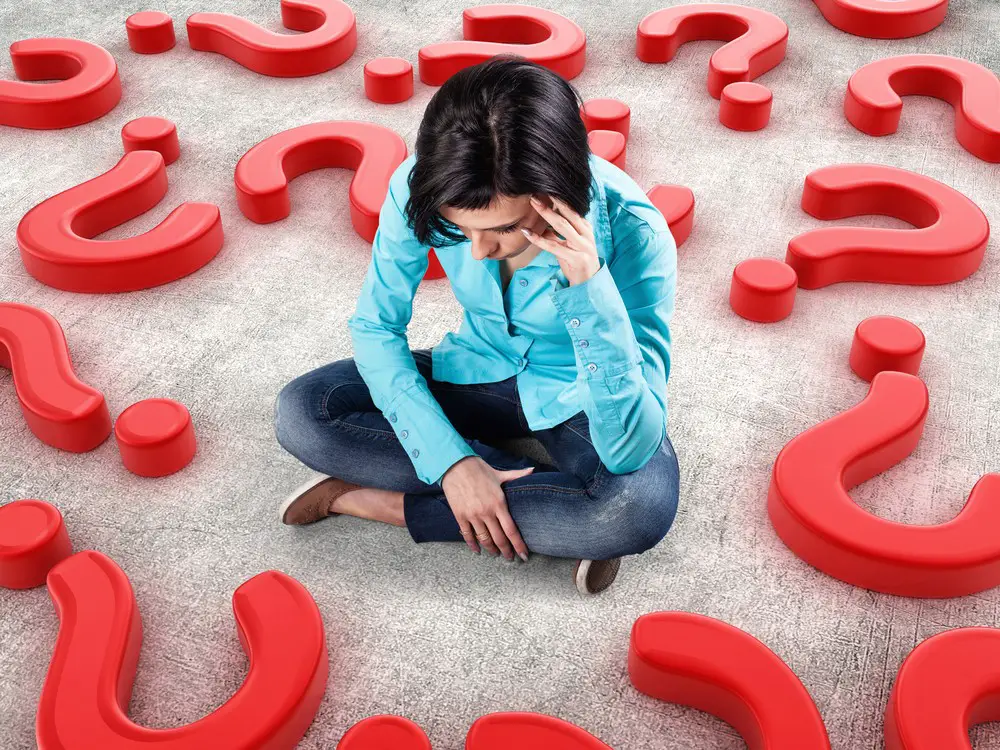
How frequently should a massage be scheduled to help with anxiety?
To effectively manage anxiety, it’s recommended that you schedule a massage once every two weeks. However, each individual’s needs may vary. It’s crucial to listen to your body and decide on a frequency that works best for you.
What is the ideal interval between massages for stress relief?
The ideal interval between massages for stress relief is typically two to four weeks, depending on your needs and preferences. During this time, the benefits of the previous massage can still be felt, allowing a window of time for your body and mind to recover before the next session.
Can weekly massages help alleviate anxiety?
Yes, weekly massages can help alleviate anxiety. Incorporating a massage into your weekly routine can provide a regular opportunity for relaxation and stress reduction. However, it’s important to consider your schedule and financial situation when deciding the frequency.
Do regular massages have a positive impact on anxiety?
Regular massages can indeed have a positive impact on anxiety. Studies have shown that massage therapy can help reduce anxiety levels, lower stress hormones, and increase feelings of relaxation. Keeping a consistent massage schedule can help maintain these positive effects.
What is the optimal frequency of massages for anxiety management?
The optimal frequency of massages for anxiety management may vary depending on stress levels, personal preference, and financial means. Generally, receiving a massage once every two to four weeks can be beneficial in managing anxiety. Finding a frequency that suits your unique needs and circumstances is essential.
Are daily massages too much for anxiety reduction?
While daily massages may seem appealing, they may not be necessary or practical for everyone. Receiving a massage daily could prove to be both time-consuming and financially burdensome for many individuals. Instead, strive for a more manageable frequency, such as every two weeks or once a month, to reduce anxiety effectively.
Meet Jacob Maslow: Healing through Massage, Mental Health Advocacy, and Legal Insight
My name is Jacob Maslow, and my journey through mental health challenges, family turmoil, and a relentless quest for healing have become the foundation of my professional mission. As someone who relies on Lexapro to manage mental well-being and considers himself a therapy veteran, I know firsthand the complexity of finding peace within chaos.
Tragically, my ex-partner’s severe narcissism has led to a complete alienation of our children and a refusal to comply with court-ordered shared custody. The painful refusal of communication with my two minor children and the ongoing court battle has marked years of my life. Yet, despite a past filled with close relationships, I’ve found ways to channel my pain into empowerment.
Every day, I take long walks, allowing the rhythmic steps to clear my head and ease the burdens of consistent court order violations and an ex-spouse who weaponizes our children rather than co-parents.
With empathy and insight gained from personal experiences, I write articles that shed light on mental health, narcissism, and ways to triumph over life’s hurdles. One such path to healing I often explore is massage, a holistic approach that has provided immense relief in my battle against anxiety.
In addition to my writing, I also run a legal site where I support others ensnared in legal complexities, particularly those dealing with spouses who refuse to honor court orders or weaponize children.
My goal is to guide, inspire, and show others that they, too, can overcome mental health issues. I believe that anyone facing similar challenges can find their path to healing through therapy, massage, or other means. It’s a road I continue to walk, and I invite you to join me as we explore the many facets of mental and emotional well-being.
- How to Transform a Home’s Patio Space into a Relaxing Space - March 23, 2025
- 5 Strategies to Use a Cell Phone to Help Manage Your Stress - March 23, 2025
- 4 Ways to Use Measurements to Create a Relaxing Sleep Space - March 23, 2025
This site contains affiliate links to products. We will receive a commission for purchases made through these links.

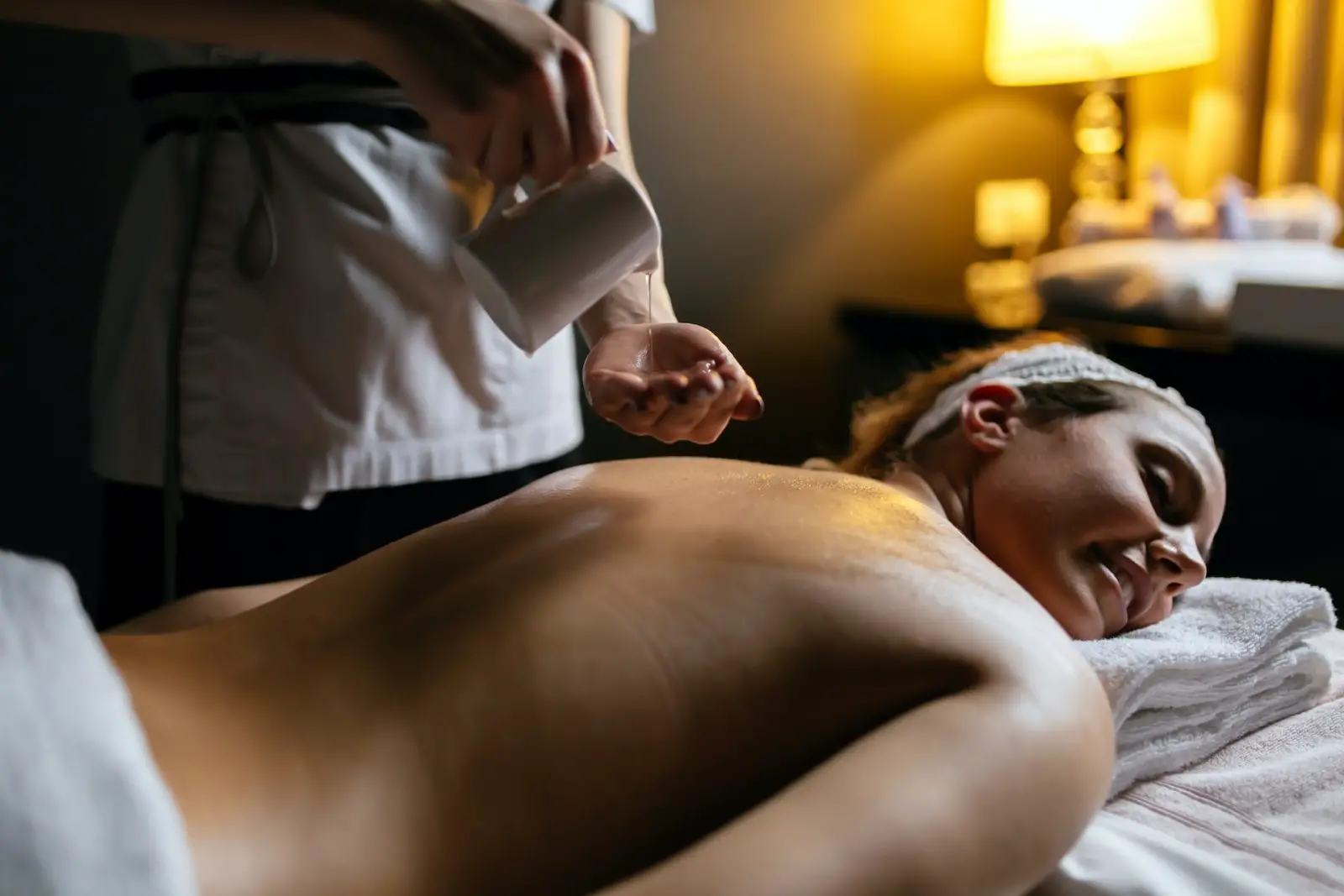
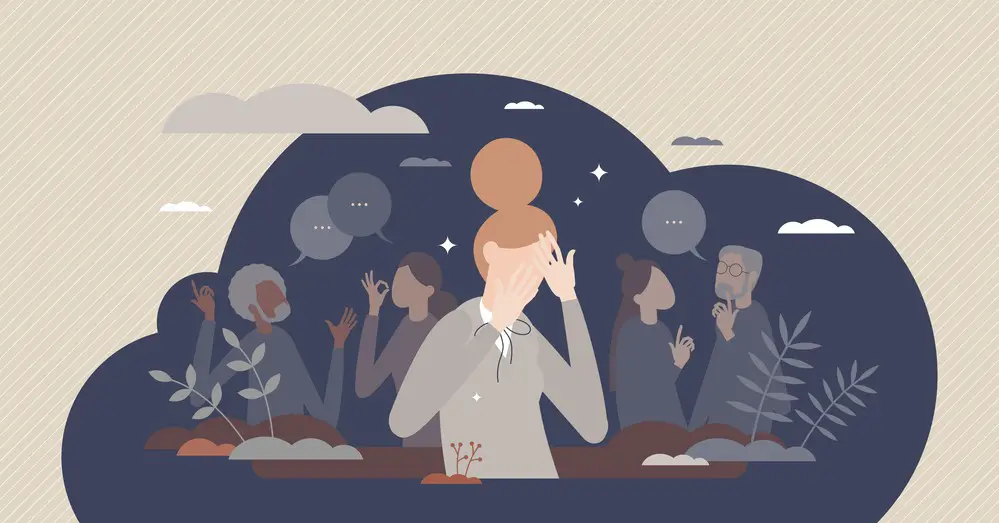 Understanding Anxiety and Massage Therapy
Understanding Anxiety and Massage Therapy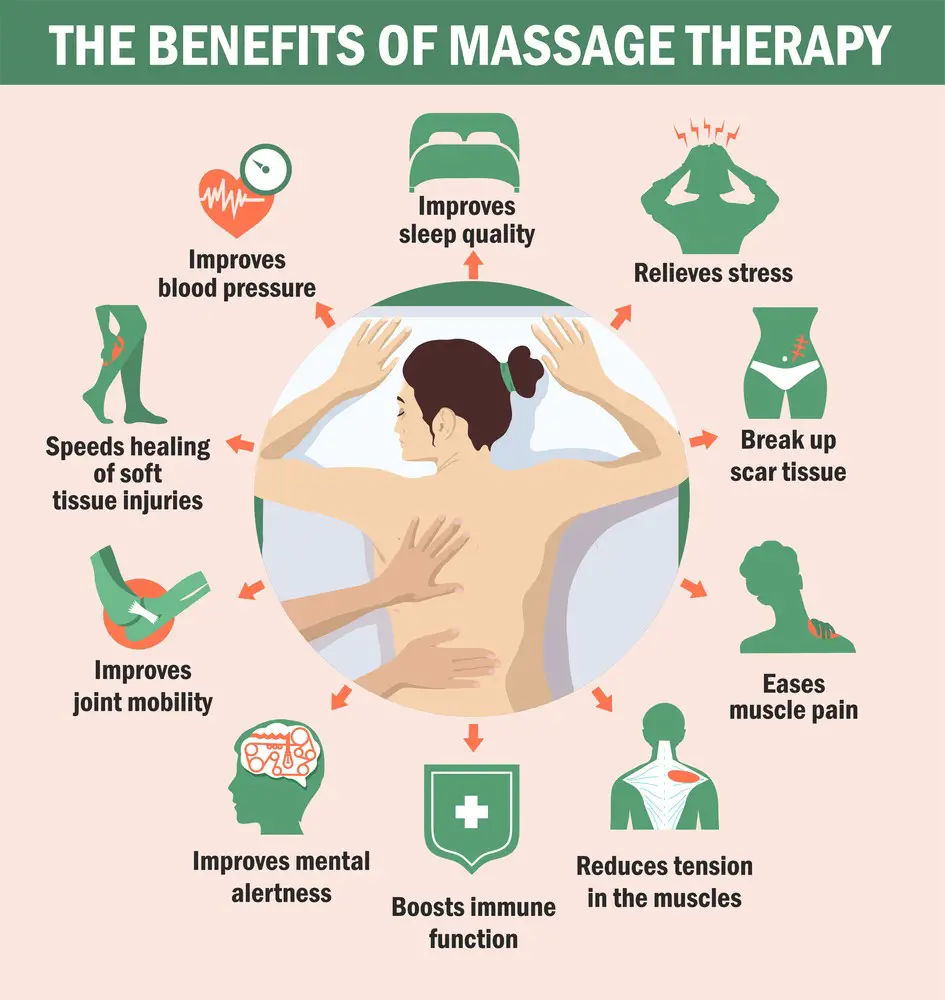 Benefits of Massage for Anxiety
Benefits of Massage for Anxiety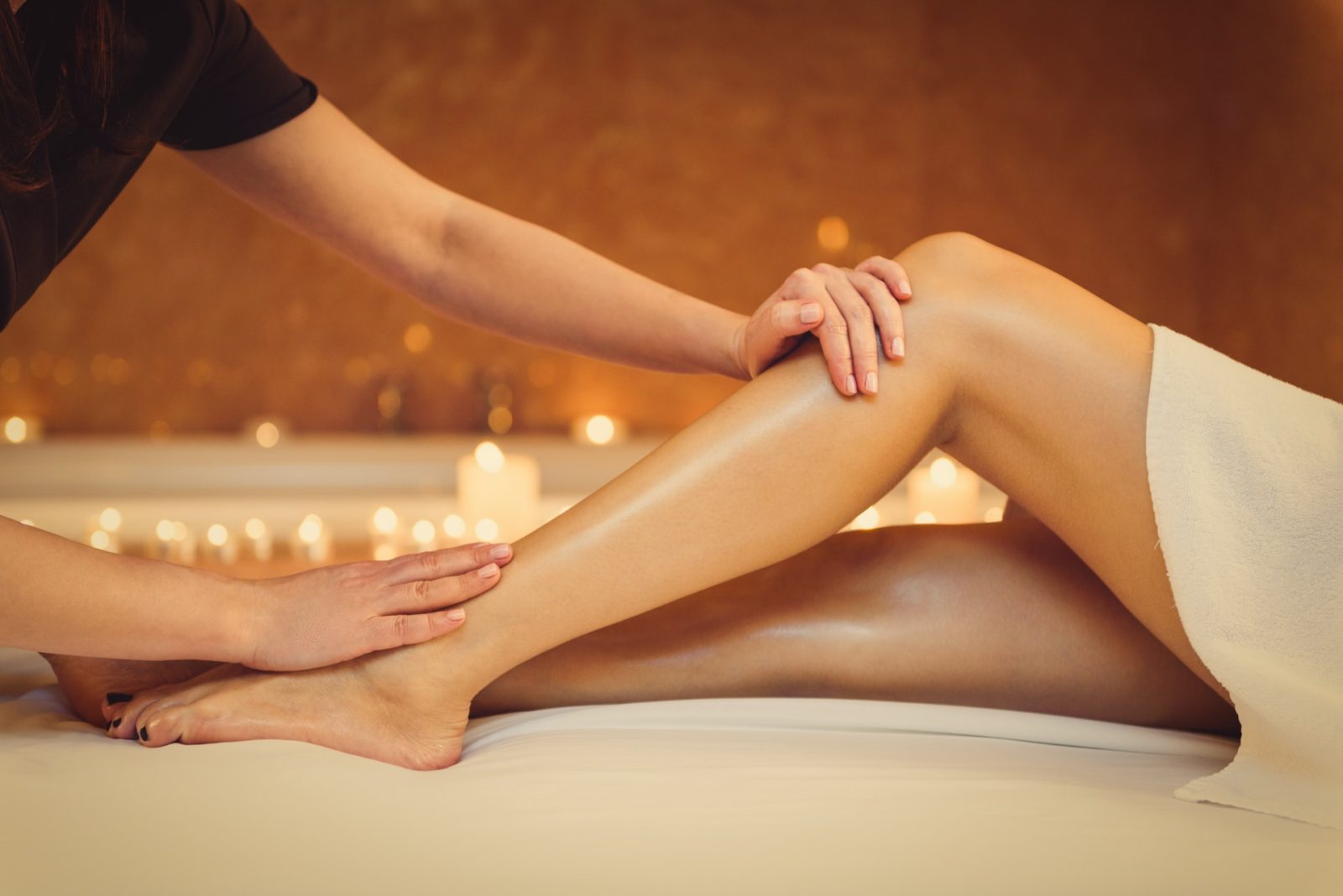 Types of Massage for Anxiety Relief
Types of Massage for Anxiety Relief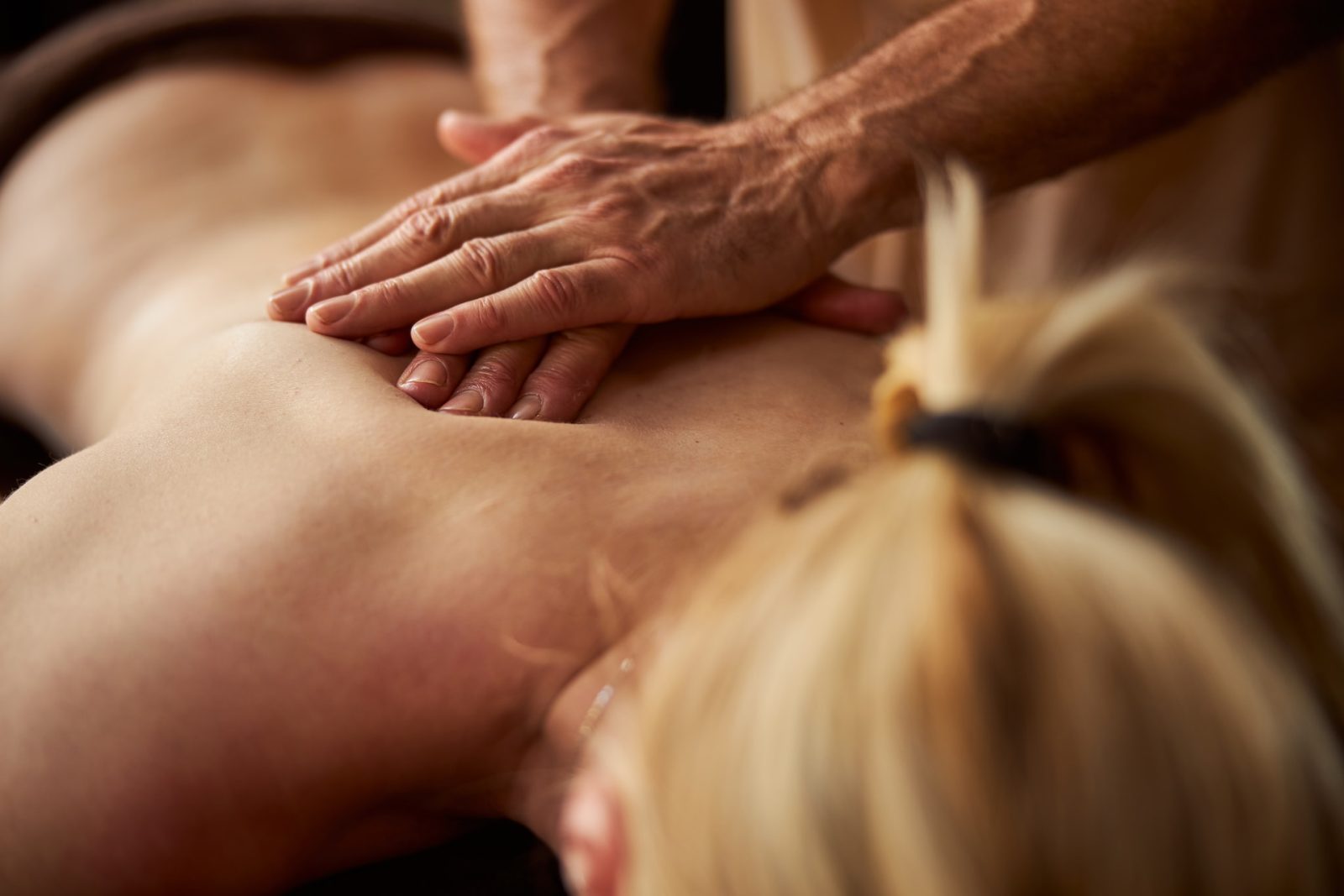 Working with a Qualified Massage Therapist
Working with a Qualified Massage Therapist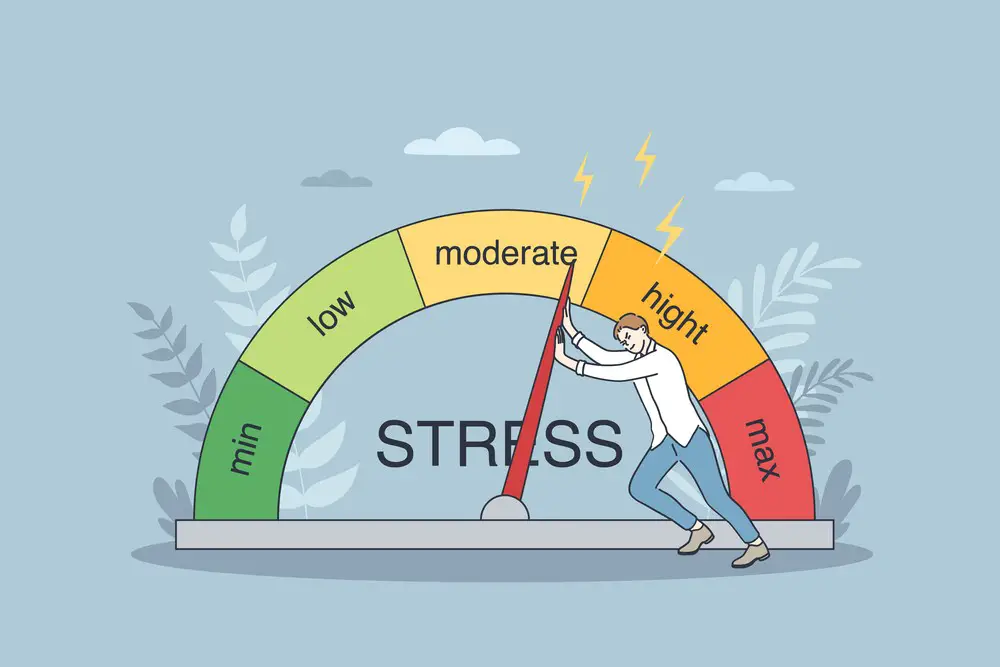 Holistic Approach to Managing Anxiety
Holistic Approach to Managing Anxiety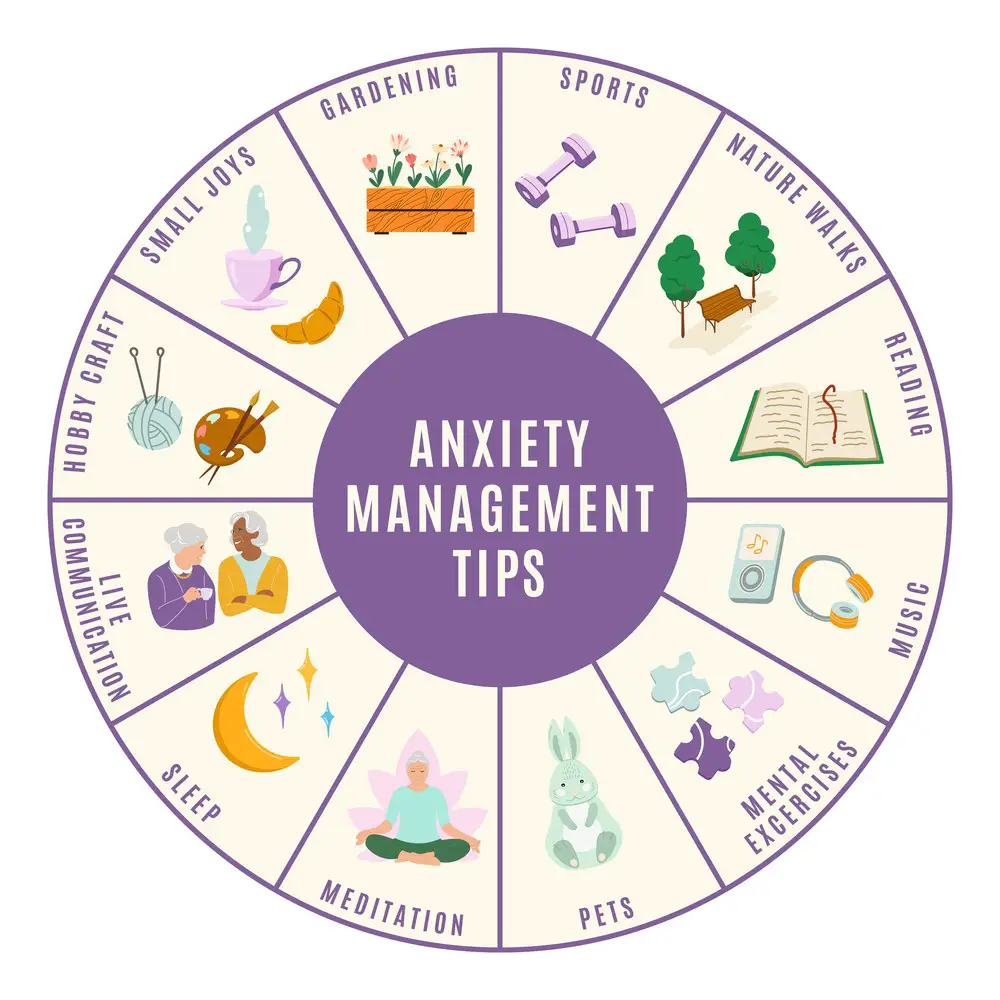 Unknotting the Tensions: When Is It Time to Turn to Professional Massage for Anxiety?
Unknotting the Tensions: When Is It Time to Turn to Professional Massage for Anxiety? When Massage Isn’t Enough: Recognizing the Need for Mental Health Care
When Massage Isn’t Enough: Recognizing the Need for Mental Health Care
